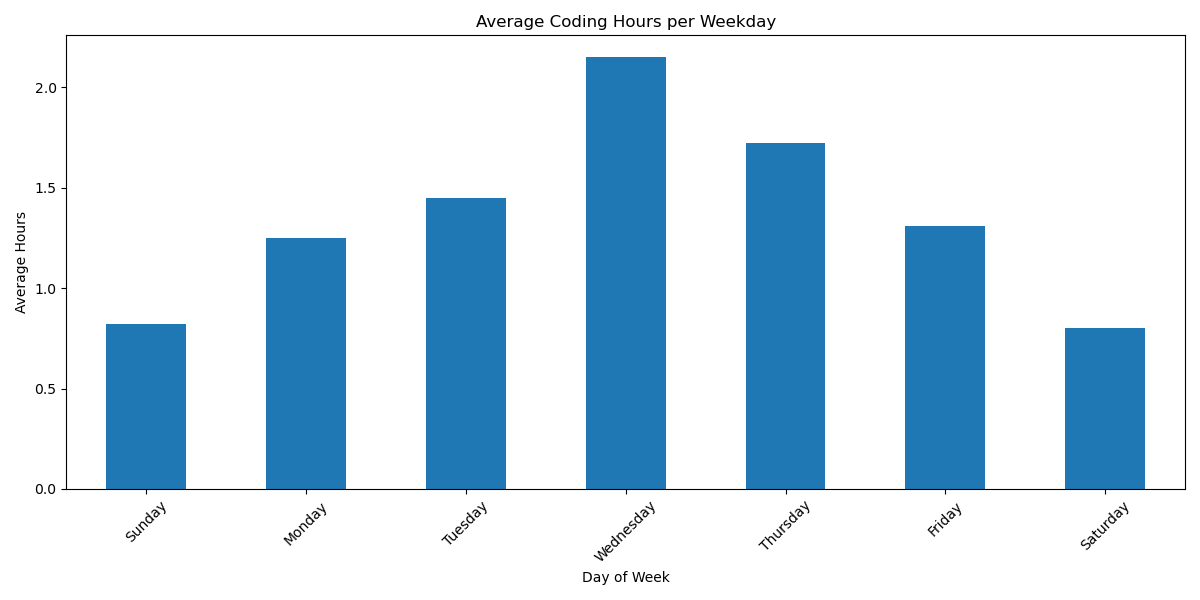My first encounter with quantified-self tracking was via wakatime in 2020, a website for tracking coding stats(time, language, projects…). I was mostly drawn to the idea of a coding leaderboard, ranking programmers on hours programmed. I now had a definitive score of my “productivity”. The data collected told an interesting story, insights into my habits that were not apparent until analyzed. For one my most productive weekday was more often than not Wednesday. I instinctively thought it was linked my schedule somehow. I had more free time on Wednesday? Turns out this a trend experienced by more developers than they realize (according to Reddit and digging around online).

Hours coded slowly rise from Monday peaking on Wednesday and then declining. The slow rise attributable to slowly context-switching back to “work-mode”. My theory on the decline on Thursday is a mini-burnout from the productivity peak on Wednesday. I probably stayed up late on Wednesday more nights than not. Or fixed a major bug, implemented a feature that was a bit challenging. On Thursday you either don’t have as much energy from lack of enough sleep, (just an hour of sleep debt can have significant impact). Or riding the high of the previous day’s productivity, you slack off a bit. This a pattern that I was not aware of until I started tracking my coding stats.
Clearly the data was telling me that to maximize productivity I’d have to focus on consistency and not one day productivity spikes. Easier said than done. My current programming stats still shows the same trend. I am aware of the pattern, taking time to break away from it. Below is this week’s coding stats.

After noticing this trend,I was hooked. I wanted to track more aspects of my life. To know how much time I spent on Twitter, YouTube, Spotify, on the laptop and phone in general. I found a great open-source project, ActivityWatch that made tracking all that and more possible. I loved it so much that I am now a regular contributor to the project. I was now officially a quantified-selfer, is that the word? I was already self-tracking but now I joined the culture. I began tracking my heart-rate, sleep, water intake, food (sometimes) and exercise.
Anyone who is familiar with quantified-self culture will tell you that data collection is the most crucial aspect. Tracking as many as possible relevant metrics of your life. The relevancy of the data could become apparent in the future. When I began self-tracking coding stats I did not think that I would end up learning so much about myself. I just wanted to compete with my friends on hours programmed. It is clearly crucial that you begin self-tracking as soon as possible. Everyday that you don’t track the data it is irreversibly lost. You need to start collecting it today! Sounds like a cult, kinda is I can’t say for certain.
I will write a second better structured post. Just wanted to post this in the meantime. Might include graph showing correlation between sleep duration and “productivity”, sleep duration and cognitive function (playing chess, github commits). See ya 👋🏽.